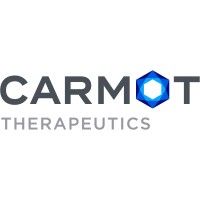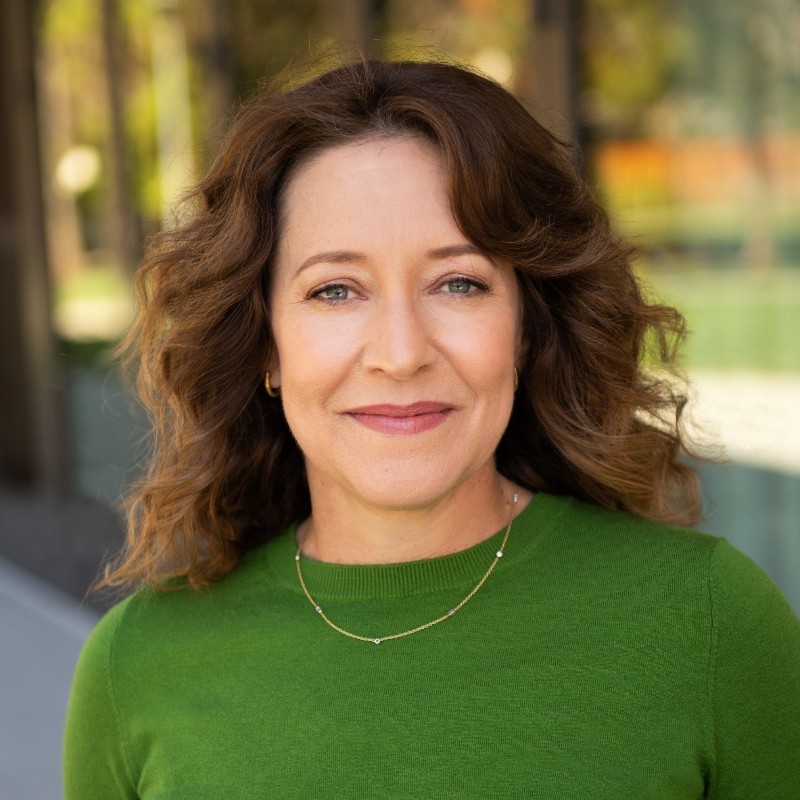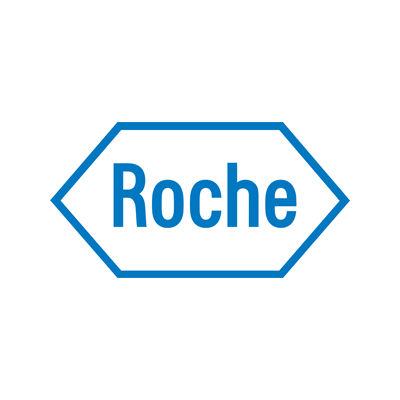预约演示
更新于:2025-09-09

Carmot Therapeutics, Inc.
更新于:2025-09-09
概览
标签
内分泌与代谢疾病
其他疾病
消化系统疾病
小分子化药
合成多肽
放射与诊断药物
疾病领域得分
一眼洞穿机构专注的疾病领域
暂无数据
技术平台
公司药物应用最多的技术
暂无数据
靶点
公司最常开发的靶点
暂无数据
| 排名前五的药物类型 | 数量 |
|---|---|
| 小分子化药 | 5 |
| 合成多肽 | 2 |
| 放射与诊断药物 | 1 |
关联
8
项与 Carmot Therapeutics, Inc. 相关的药物靶点 |
作用机制 GLP-1R激动剂 |
在研机构 |
非在研适应症- |
最高研发阶段临床2期 |
首次获批国家/地区- |
首次获批日期- |
作用机制 GIPR激动剂 [+1] |
非在研适应症 |
最高研发阶段临床2期 |
首次获批国家/地区- |
首次获批日期- |
作用机制 GIPR激动剂 [+1] |
最高研发阶段临床2期 |
首次获批国家/地区- |
首次获批日期- |
10
项与 Carmot Therapeutics, Inc. 相关的临床试验NCT06628362
A Randomized, Double-Blind, Placebo-Controlled, Parallel-Group, Multi-Center Phase 2 Study to Evaluate the Efficacy, Safety, and Tolerability of Once-Weekly CT-388 Administered Subcutaneously for 48 Weeks to Participants Who Are Overweight or Obese With Type 2 Diabetes Mellitus
This is a multi-center, randomized, double-blind, placebo-controlled, parallel group dose-finding study to evaluate the efficacy and safety of CT-388 at low, middle, and high doses in participants who are overweight or obese with Type 2 diabetes mellitus (T2DM).
开始日期2024-11-21 |
申办/合作机构 |
ISRCTN90651766
Phase I trial: Quotient code QSC301813
开始日期2024-09-16 |
申办/合作机构 |
NCT06525935
A Randomized, Double-Blind, Placebo-Controlled, Parallel Group, Multi-Center Phase 2 Study to Evaluate the Efficacy, Safety, and Tolerability of Once-Weekly CT-388 Administered for 48 Weeks to Participants With Obesity or Overweight With at Least One Weight-Related Comorbidity
This is a multi-center, randomized, double-blind, placebo-controlled, parallel group dose-finding study to evaluate the efficacy and safety of CT-388 at low, middle, and high doses in participants with obesity or who are overweight with at least one weight-related comorbidity.
开始日期2024-08-16 |
申办/合作机构 |
100 项与 Carmot Therapeutics, Inc. 相关的临床结果
登录后查看更多信息
0 项与 Carmot Therapeutics, Inc. 相关的专利(医药)
登录后查看更多信息
4
项与 Carmot Therapeutics, Inc. 相关的文献(医药)2019-01-01·Cell chemical biology1区 · 生物学
Fragment-Based Drug Discovery: Advancing Fragments in the Absence of Crystal Structures
1区 · 生物学
Review
作者: Erlanson, Daniel A ; Jahnke, Wolfgang ; Davis, Ben J
Fragment-based drug discovery typically requires an interplay between screening methods, structural methods, and medicinal chemistry. X-ray crystallography is generally the method of choice to obtain three-dimensional structures of the bound ligand/protein complex, but this can sometimes be difficult, particularly for early, low-affinity fragment hits. In this Perspective, we discuss strategies to advance and evolve fragments in the absence of crystal structures of protein-fragment complexes, although the structure of the unliganded protein may be available. The strategies can involve other structural techniques, such as NMR spectroscopy, molecular modeling, or a variety of chemical approaches. Often, these strategies are aimed at guiding evolution of initial fragment hits to a stage where crystal structures can be obtained for further structure-based optimization.
2018-01-01·The Journal of biological chemistry2区 · 生物学
Co(II) and Ni(II) binding of the Escherichia coli transcriptional repressor RcnR orders its N terminus, alters helix dynamics, and reduces DNA affinity
2区 · 生物学
Article
作者: Bobst, Cedric E ; Maroney, Michael J ; Iwig, Jeffrey S ; Huang, Hsin-Ting ; Kaltashov, Igor A ; Chivers, Peter T
RcnR, a transcriptional regulator in Escherichia coli, derepresses the expression of the export proteins RcnAB upon binding Ni(II) or Co(II). Lack of structural information has precluded elucidation of the allosteric basis for the decreased DNA affinity in RcnR's metal-bound states. Here, using hydrogen-deuterium exchange coupled with MS (HDX-MS), we probed the RcnR structure in the presence of DNA, the cognate metal ions Ni(II) and Co(II), or the noncognate metal ion Zn(II). We found that cognate metal binding altered flexibility from the N terminus through helix 1 and modulated the RcnR-DNA interaction. Apo-RcnR and RcnR-DNA complexes and the Zn(II)-RcnR complex exhibited similar 2H uptake kinetics, with fast-exchanging segments located in the N terminus, in helix 1 (residues 14-24), and at the C terminus. The largest difference in 2H incorporation between apo- and Ni(II)- and Co(II)-bound RcnR was observed in helix 1, which contains the N terminus and His-3, and has been associated with cognate metal binding. 2H uptake in helix 1 was suppressed in the Ni(II)- and Co(II)-bound RcnR complexes, in particular in the peptide corresponding to residues 14-24, containing Arg-14 and Lys-17. Substitution of these two residues drastically affected DNA-binding affinity, resulting in rcnA expression in the absence of metal. Our results suggest that cognate metal binding to RcnR orders its N terminus, decreases helix 1 flexibility, and induces conformational changes that restrict DNA interactions with the positively charged residues Arg-14 and Lys-17. These metal-induced alterations decrease RcnR-DNA binding affinity, leading to rcnAB expression.
2011-01-01·Topics in current chemistry
Introduction to Fragment-Based Drug Discovery
Review
作者: Erlanson, Daniel A
Fragment-based drug discovery (FBDD) has emerged in the past decade as a powerful tool for discovering drug leads. The approach first identifies starting points: very small molecules (fragments) that are about half the size of typical drugs. These fragments are then expanded or linked together to generate drug leads. Although the origins of the technique date back some 30 years, it was only in the mid-1990s that experimental techniques became sufficiently sensitive and rapid for the concept to be become practical. Since that time, the field has exploded: FBDD has played a role in discovery of at least 18 drugs that have entered the clinic, and practitioners of FBDD can be found throughout the world in both academia and industry. Literally dozens of reviews have been published on various aspects of FBDD or on the field as a whole, as have three books (Jahnke and Erlanson, Fragment-based approaches in drug discovery, 2006; Zartler and Shapiro, Fragment-based drug discovery: a practical approach, 2008; Kuo, Fragment based drug design: tools, practical approaches, and examples, 2011). However, this chapter will assume that the reader is approaching the field with little prior knowledge. It will introduce some of the key concepts, set the stage for the chapters to follow, and demonstrate how X-ray crystallography plays a central role in fragment identification and advancement.
242
项与 Carmot Therapeutics, Inc. 相关的新闻(医药)2025-09-09
iStock,
Dragon Claws
If LB is successful, the debut would mark the first IPO in months for the sector, as the biotech industry continues to endure a nuclear winter.
LB Pharma is seeking $228.5 million in its initial public offering, the first attempt from a biotech at climbing on to the public markets in many months.
Proceeds from the offering could rise to $263.4 million if the underwriters fully exercise their options, according to
LB’s prospectus
, which was filed Monday. The company is seeking a midpoint of $15 per share for the IPO, with more than 16 million shares expected to be sold in the offering. LB had $14 million in cash on hand as of the end of June.
If
LB is successful
, the debut would mark the first IPO in months for the sector, as the biotech industry endures a nuclear winter. Few biotechs have made their debut this year and many have watched their share prices plummet. Metsera is arguably the most successful of the year. The weight loss biotech raised $312 million in January and its shares have risen 37% year to date
thanks to data
for its Phase I ultra-long-acting amylin injectable for obesity.
LB has a packed clinical schedule for lead asset LB-102, which the IPO proceeds will support. The novel benzamide antipsychotic is currently in Phase II testing for schizophrenia. LB expects to use $133 million to initiate a Phase III trial in the first quarter of 2026 for the indication, with topline data expected in the second half of 2027. This trial is expected to support a regulatory filing for the drug.
LB-102 is also in a Phase I trial for bipolar depression. About $25 million of the IPO proceeds will support the advancement of the drug into Phase II in the first quarter of 2026, with topline data expected in the first quarter of 2028.
LB is headed by Heather Turner, the former CEO of Carmot Therapeutics, the metabolic disease biotech that was acquired by Roche for $3.1 billion in December 2023. During her time at Carmot, Turner oversaw a dual track process at an IPO and a buyout, which ultimately resulted in the Roche deal. After the transaction, she jumped to LB in November 2024.
临床1期IPO临床2期并购
2025-08-27
iStock,
VectorStory
BioSpace
did a deep dive into biopharma female executives who navigated difficult markets to lead their companies to high-value exits.
Editor’s Note: This deep dive was originally published July 23, 2025, as a special edition of Biopharm Executive.
Subscribe
to Biopharm Executive to receive market insights, deals, business stories and deep dives into key policy issues impacting biopharma.
There’s been a theme among the most high-pro over the past few months: women.
Intra-Cellular
(Sharon Mates).
Blueprint Medicines
(Kate Haviland).
Carmot Therapeutics
(Heather Turner).
Capstan Therapeutics
(Laura Shawver).
Vigil Neuroscience
(Ivana Magovcevic-Liebisch). And so on and so on.
Still
largely underrepresented
in biopharma’s C suites, these female executives had to navigate some really difficult markets to lead their companies to
high-value exits
. In this special edition of BioPharm Executive,
BioSpace
highlights their stories and those of other trailblazing women, from dealmakers to scientists and regulators.
In July, we began running a series of profiles on women dealmakers in biopharma. Up first, we spoke with
Audrey Greenberg
, venture partner with Mayo Ventures. She told us about her start on Wall Street and her rise as a champion of cell therapy.
Next, we chatted with
Sophie Kornowski
, whose humble beginnings as a medicine taste tester led her to a career in pharma before she became a biotech-fixer-upper. She’s at the end of one biotech journey now, awaiting the next opportunity.
And finally, we met with ADARx’s
Zhen Li
, whose career in biotech began with an act of rebellion.
These women couldn’t help but provide their advice for the women coming behind them. I recapped the
best of the best in a story here
.
If you don’t fall on your face, you probably didn’t run fast enough.
Sophie Kornowski, CEO of Boston Pharma
There are plenty more women out there at the helm of companies—although not nearly enough, in my humble opinion—moving important science from the lab to patients to the market. Acadia Pharmaceuticals is
another good example
—the company is lead by women in both the CEO and CMO roles, a rarity in the industry.
There are likely more exciting deals being negotiated behind the scenes right now by women. We can’t wait to tell those stories, too.
2025-08-22
The schizophrenia biotech LB Pharmaceuticals is working with the investment bank Leerink Partners on a potential initial public offering,
Endpoints News
has learned.
LB could publicly file its IPO paperwork in the coming days, according to sources familiar with the matter. It’s also working with additional investment banks, as is customary, to prepare its S-1 and court potential public market investors, according to one of the sources.
The money would help fund a pivotal trial of the company’s drug LB-102. Its plans could always change at the last minute, especially in the volatile market for biotech stocks and an uncertain environment in Washington.
Representatives for Leerink and for the company didn’t immediately respond to requests for comment on Friday
.
If the drug developer follows through, it would bring the biopharma industry a step closer to ending a
six-month drought for initial public offerings in the US
. Aardvark Therapeutics’ mid-February debut was the last major US biotech IPO. Several Chinese companies have gone public on the Hong Kong bourse in that time.
The lull has been yet another element of US biotech’s dreary, yearslong slump in the public and private markets. High interest rates, a pullback from generalist funds that have gravitated toward tech and AI, macro headwinds, and poor after-market performance from earlier IPOs have all given pause to young companies thinking about joining the public markets.
LB
considered an IPO last summer
, but iced those plans as the market slipped into another lull.
It last closed a
$75 million Series C
financing at the beginning of 2024. Heather Turner, who joined as CEO last year,
told Endpoints in January
that the company would “like to start with the private financing” route and “then, if the markets are there, we’ll do a public one as well.” Turner previously ran a dual-track process with obesity biotech Carmot Therapeutics, going so far as to
file IPO paperwork
before backing out at the last minute to go with a
$2.7 billion upfront exit
to Roche instead.
LB is attempting to create a new treatment for people with schizophrenia.
That part of the CNS field saw a surge in activity in late 2023, when Bristol Myers Squibb bought Karuna Therapeutics for $14 billion and AbbVie acquired Cerevel Therapeutics for
$8.7 billion
. Meanwhile, MapLight Therapeutics secured a
$372 million Series D
this summer from Forbion, Goldman Sachs Alternatives and others. MapLight is in Phase 2 with ML-007C-MA for schizophrenia and Alzheimer’s disease psychosis.
Karuna’s drug, Cobenfy, was approved in 2024 and reeled in
$35 million
in the second quarter of this year, but Leerink analysts revised peak sales estimates because of
setbacks in other trials
. Cerevel’s drug, meanwhile, had a high-profile
clinical failure
and has cost AbbVie billions of dollars in
impairment charges
.
LB has said it aims to begin a pivotal trial this year for LB-102, a derivative of amisulpride, an antipsychotic medication that has been approved in some European countries for decades.

上市批准临床2期IPO并购
100 项与 Carmot Therapeutics, Inc. 相关的药物交易
登录后查看更多信息
100 项与 Carmot Therapeutics, Inc. 相关的转化医学
登录后查看更多信息
组织架构
使用我们的机构树数据加速您的研究。
登录
或

管线布局
2025年09月21日管线快照
管线布局中药物为当前组织机构及其子机构作为药物机构进行统计,早期临床1期并入临床1期,临床1/2期并入临床2期,临床2/3期并入临床3期
药物发现
3
1
临床前
临床1期
2
2
临床2期
其他
3
登录后查看更多信息
当前项目
| 药物(靶点) | 适应症 | 全球最高研发状态 |
|---|---|---|
CT-388 ( GIPR x GLP-1R ) | 肥胖 更多 | 临床2期 |
CT-868 ( GIPR x GLP-1R ) | 肥胖 更多 | 临床2期 |
CT-996 ( GLP-1R ) | 2型糖尿病 更多 | 临床1期 |
CT-966 ( GLP-1R ) | 肥胖 更多 | 临床1期 |
CT-859 ( GIPR x GLP-1R ) | 肝细胞癌 更多 | 临床前 |
登录后查看更多信息
药物交易
使用我们的药物交易数据加速您的研究。
登录
或

转化医学
使用我们的转化医学数据加速您的研究。
登录
或

营收
使用 Synapse 探索超过 36 万个组织的财务状况。
登录
或

科研基金(NIH)
访问超过 200 万项资助和基金信息,以提升您的研究之旅。
登录
或

投资
深入了解从初创企业到成熟企业的最新公司投资动态。
登录
或

融资
发掘融资趋势以验证和推进您的投资机会。
登录
或

Eureka LS:
全新生物医药AI Agent 覆盖科研全链路,让突破性发现快人一步
立即开始免费试用!
智慧芽新药情报库是智慧芽专为生命科学人士构建的基于AI的创新药情报平台,助您全方位提升您的研发与决策效率。
立即开始数据试用!
智慧芽新药库数据也通过智慧芽数据服务平台,以API或者数据包形式对外开放,助您更加充分利用智慧芽新药情报信息。
生物序列数据库
生物药研发创新
免费使用
化学结构数据库
小分子化药研发创新
免费使用
